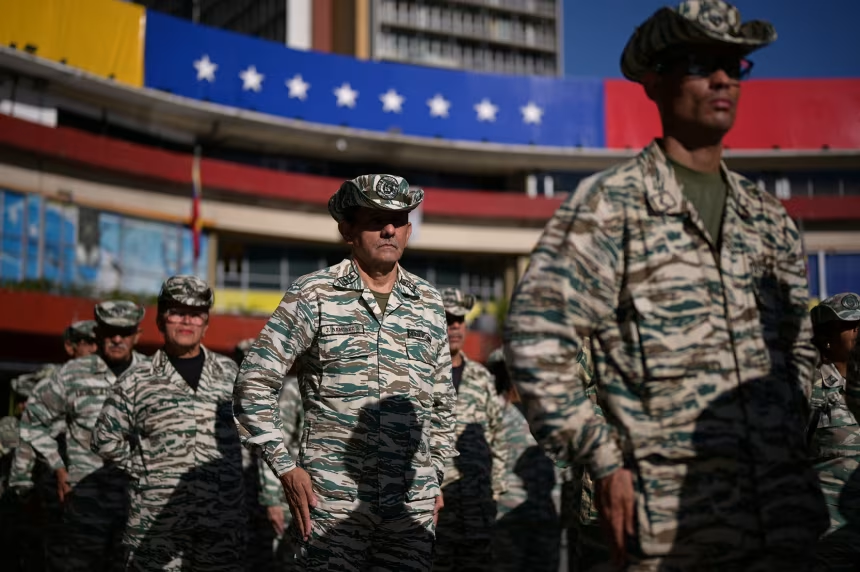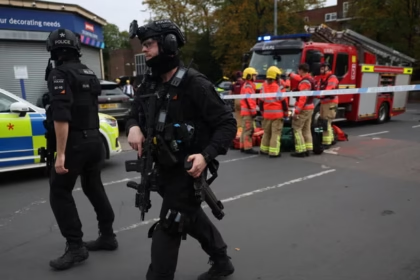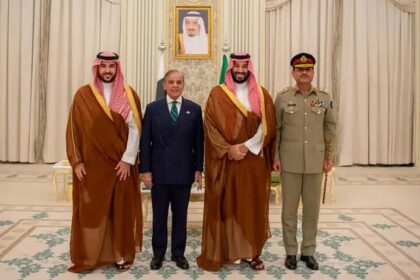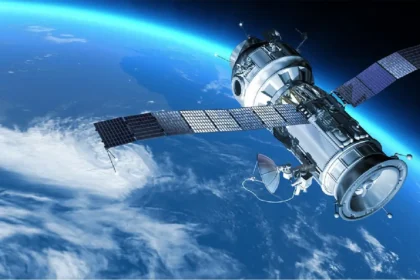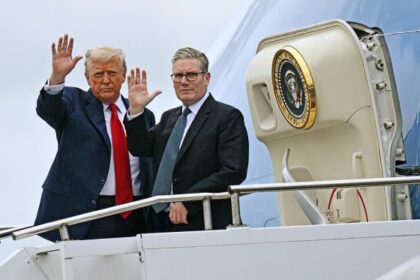President Donald Trump has escalated U.S. actions against Venezuela, combining overt military steps with intelligence directives, as tensions mount over accusations of drug-trafficking, regime legitimacy and regional security. This consolidation of pressure marks one of the most significant shifts in U.S. engagement in Latin America under his administration.
U.S. forces recently carried out lethal strikes on vessels in the Caribbean that the administration claims were linked to narcotics smuggling operations emanating from Venezuela. President Donald Trump has publicly confirmed that the Central Intelligence Agency has been authorised to conduct covert operations inside Venezuelan territory, signalling a rare move beyond standard counter-drug posture into the realm of direct regime pressure.
Alongside maritime strikes, the U.S. has deployed warships, aircraft and thousands of troops across the southern Caribbean. These deployments have been justified by the White House as part of a broader campaign against “narco-terror” networks. The administration argues that off-shore and transit threats to U.S. security necessitate stronger action—but critics warn the legal and diplomatic risks are substantial.
In response, Venezuelan President Nicolás Maduro declared “maximum preparedness” and mobilized armies, police and civilian militias to defend the nation’s coasts, borders and infrastructure. He accused the United States of seeking regime change and warned that any attack on Venezuela would trigger a national resistance movement. The rhetoric reflects a sharp escalation and raises concerns about a broader confrontation beyond anti-narcotics operations.
President Donald Trump says that during recent communications Maduro offered major concessions to Washington—including access to oil and mineral resources to avert U.S. military pressure. According to Trump, those offers were rejected in favor of a harder line. Meanwhile, U.S. military advisors say the goal is to pressure the Venezuelan military into withdrawing support for Maduro, creating openings for democratic transition.
The White House strategy appears multifaceted: it combines economic leverage, resource diplomacy and military readiness. By publicly acknowledging CIA authorizations and secretive operations, President Donald Trump has signaled he is willing to stretch executive powers. Yet lawmakers in Congress—both Republican and Democrat have raised concerns about the absence of formal authorization and transparency in the operations.
Investors and analysts are watching how the campaign affects global commodity markets, especially oil and minerals tied to Venezuela. For Caracas, the strategy threatens to undermine its remaining financial lifelines and force engagement with international investors on U.S. terms. Internally, the mobilization of militia forces and expanded military drills suggest Venezuela is bracing for confrontation on land, sea and air.
What happens next may include further naval or air strikes, covert operations in Venezuelan territory and diplomatic moves to align Latin American nations behind or against the U.S. pressure campaign. The coming days will test whether the escalation results in regime change, negotiated transition or prolonged standoff—with significant risks for the region and the United States alike.


